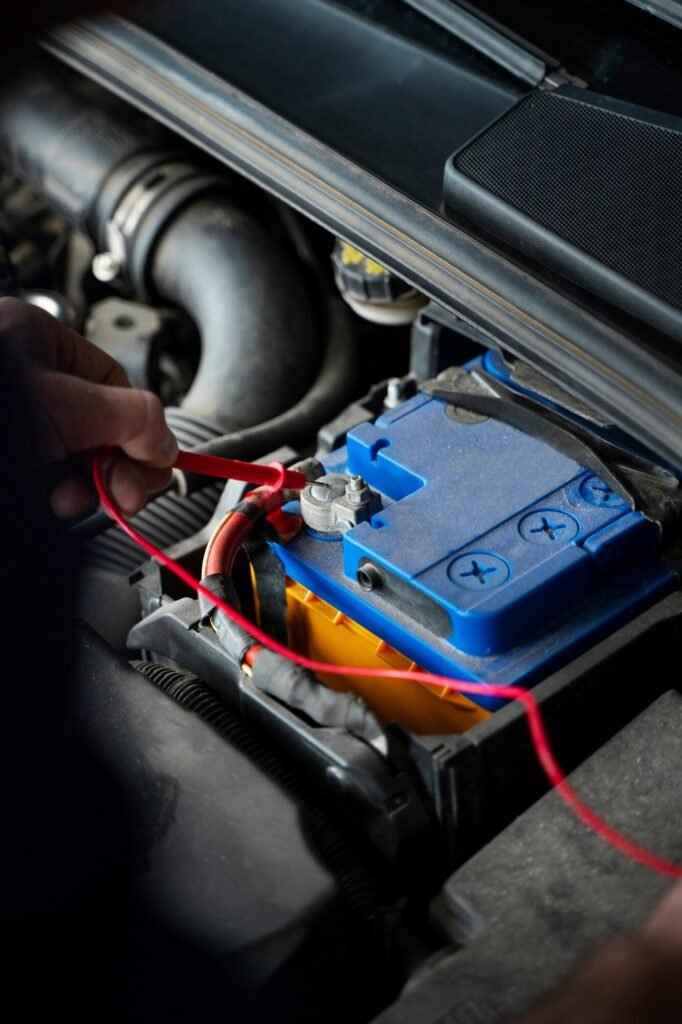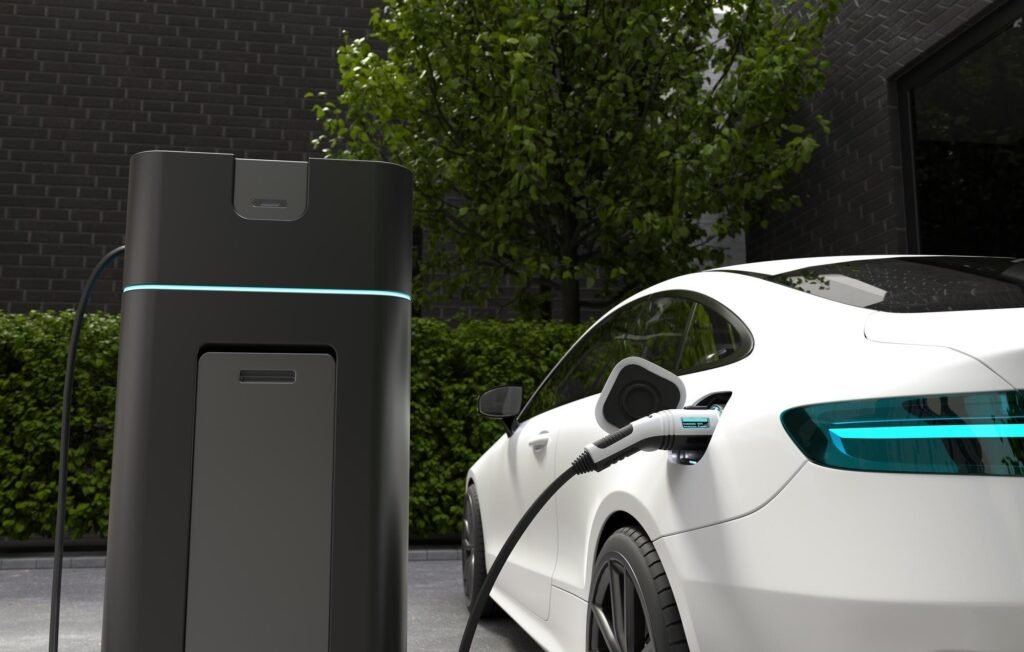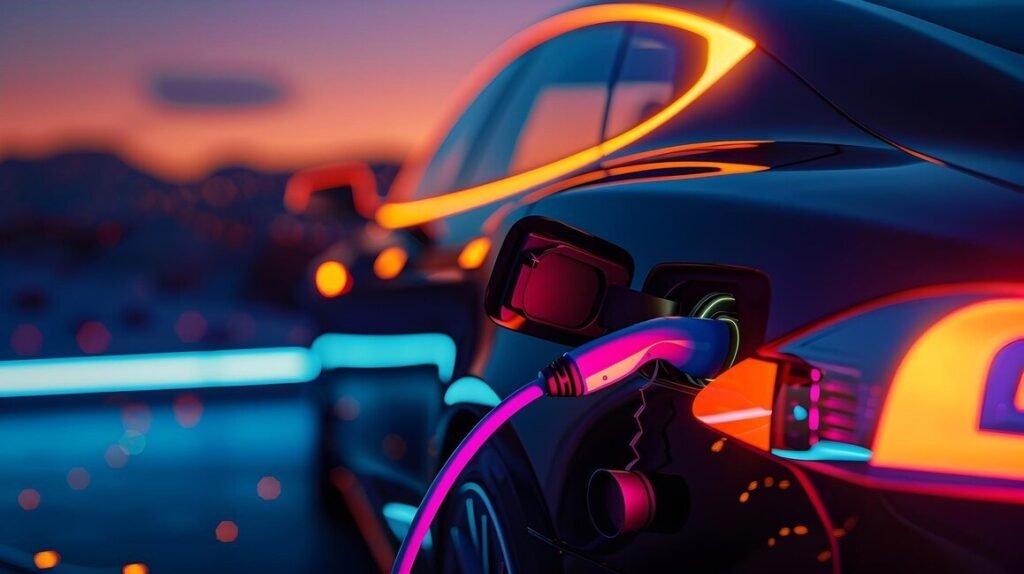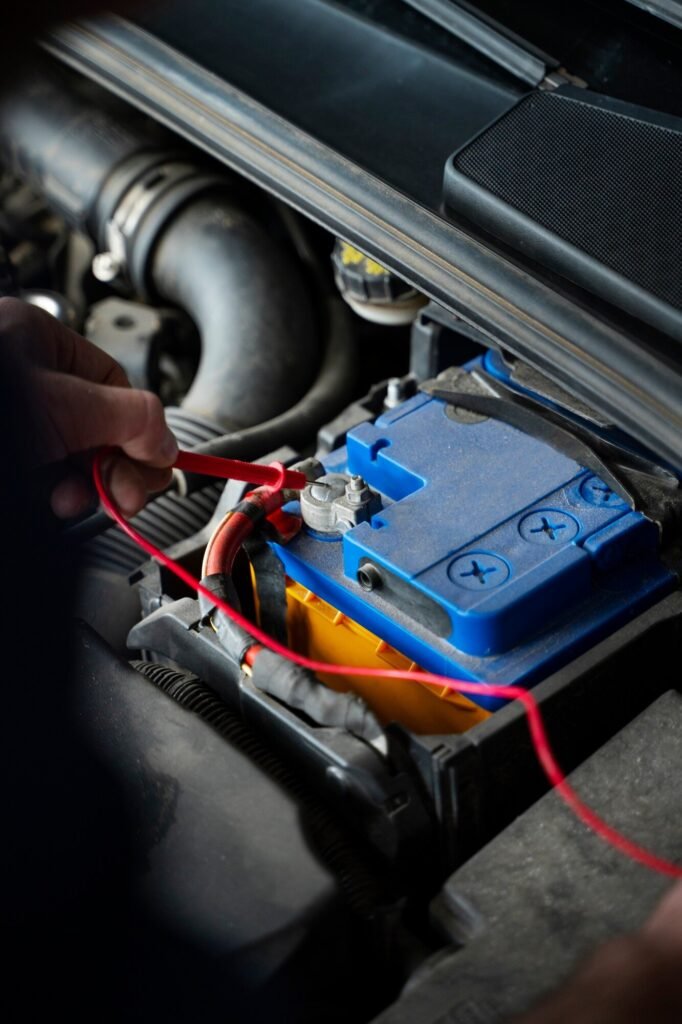introduction to Electric vehicle charger brands
In the past few years, EV growth has exceeded all expectations thanks to the climate change problem and new trends in the quickly evolving transportation industry. One after the other, the opinion about electric vehicles is gaining increasing appreciation, along with the need or the request for good quality and optimized EV chargers. In this comprehensive guide, we’ll focus on the high-quality charging of electric car chargers, the characteristics and benefits of electric car chargers, and their continued relevance in the ever-changing industry.

Even though we are just starting to explore the brands of EV chargers, it will be helpful to have a little idea about how they work before jumping directly ahead. The electricity flow onto the electric vehicle’s battery pack from the charge stations replenishes our energy efficiency while driving electric cars. There are three main categories of EV chargers: The EV chargers come in three unique assortments: Level 1, Level 2, and the DC Quick Chargers.
Level 1 Chargers:
We implemented a universal DFC charger to find the proper outlet. Additionally, home technology is easy to utilize. To use. This takes at least eight hours, hence their viability for overnight charging. It is not a high-tech charging device but is relatively slow-charged.
But it’s perfect for lifting your battery every night.
Level 2 Chargers:
The Level 2 power grid stage uses 240 volts and is seven times faster than its Level 1 counterpart. They can be found in office freestanding units, public charging stations, and homes. With level 2 chargers, charging an EV battery for daily operations takes several hours. Therefore, the quality is excellent.
DC Fast Chargers:
Furthermore, DC Fast Chargers, sometimes called Leve 3 chargers, deliver the highest charging speed levels and are commonly situated in on-highway and strategic routes public chargers. This charger will recharge the EV battery for 80% of its capacity in 30 minutes, thus making it a convenient feature to tag along during long walks.
Tesla
Overview:
ChargePoint is the world’s largest and most well-established EV organization, providing options for charging consumers. Public transportation, business, and domestic vehicles all use this network.
Features:
Supercharger Network:
esla’s Supercharger networks are preferable because they are fast. Charging at convenient places ensures Tesla owners have no difficulty traveling long distances.
V3 Superchargers:
The new Tesla V3 Superchargers made charging devices up to 250 kW possible, which
Destination Charging:
In the meantime, Tesla provides destination charging at cafes, hotels, and other locations where Tesla vehicles are allowed to travel, which is an extra achievement in terms of convenience. For owners of Tesla cars.

ChargePoint
Overview:
ChargePoint is the world’s largest, most solidly anchored EV charging network, offering consumers a range of charge decisions. Public transportation, business, and homegrown vehicles Everyone makes use of this organization.
Features:
Networked Charging Stations:
ChargePoint had networked charging stations that were cloud-connected, thereby giving the consumers a chance to locate, reserve, and pay for the charging sessions via the ChargePoint app.
Scalable Solutions:
ChargePoint provides in-built infrastructure for commercial use, such as locations with charging stations and operation management tools and support.
Flexibility:
With diverse billing alternatives, such as pay-per-use, subscription plans, and billing integration from external providers, ChargePoint allows charging stations to be set up most conveniently and profitably.

EVgo
Overview:
EVgo is one the best-known EV charging networks that helps diversify and makes charging easier for EV-riders in urban and suburban areas.
Features:
High-Speed Charging:
EVgo operates a system of fast-charging stations offering 350 kW of DC power with unbeatable recharging times, allowing EV drivers to top up their vehicle’s battery at their convenience.
Urban Charging Hubs:
EVgo manages a charging network of urban centers that provides convenient choices for prominent city residents, commuters, and fleet operations.
Integration with EV Manufacturers:
EVgo works together with carmakers who are leaders in the EV industry to deliver to those who purchased them a smooth charging experience, which includes the integration of charging, navigation, and digital payments in one application.
Electrify America
Overview:
Electrify America is a component of the Volkswagen Group’s platform that intends to bring a fleet of quick-charging stations to the East Coast and West Coast.
Features:
Nationwide Coverage:
The number of fast chargers across. The goal of the national Electrify America network is to reach a variety of roads, towns, and isolated locations. They are allowing every EV driver access to the charging services.
High-Power Charging:
Electrify America’s chargers offer charging mileage up to 350 kW, ensuring fast charging for EVs with compatible devices.
Collaboration with Automakers:
Electrify America engages with international automakers and aims to build the bases for faster charging points and promote public acceptance of electric vehicles.
Compare the Popular Automobile Electric Charger Brands
To help you choose the right electric vehicle charger brand for your needs, here’s a comparison of key features and offerings: To help you select the e-vehicle charger brand that suits you, the following is a side-by-side comparison of key features and offerings:
| Brand | High speed of charging | Wide network coverage | Main features |
| Tesla | Up to 250 kW | Most of its | | The V3 supercharger network Superchargers and destination charging |
| Chargepoint | Up to 150 kW | Globally Global | Networked charging stations Scalable solutions, Flexible billing |
| D3 – EVgo | Up to 350 kW | | Urban/Suburban | High-speed charging, Urban charging hubs, Integration with EV manufacturers |
| Electrify America | Power up to 350 kW | chargers one nationwide network | Independently constructed, High-power charging, Partnered with automakers |
A Few Important Aspects to be Taken Care of While Selecting an Electric Vehicle Charger Brand
1. Charging Speed
2. Network Coverage
3. Compatibility
4. Additional Features
Critical Factors for the Homeowner to Pay Attention During Installing an Electric Vehicle (EV) Charger
1. Electrical Capacity
2. Location
3. Charging Speed
4. Cost of Installation
Tips for Keeping Your Electric Vehicle Served
1. Regular Inspections
2. Cleaning and Maintenance
3. Software Updates
4. Professional Servicing
Electric car charging station technologies are the modern dynamism.
1. Wireless Charging
2. Vehicle-to-Grid Integration
3. Smart Charging Solutions
4. Portable Charging Options
The Future of Electric Vehicle Charging: Automation and the growth of new and developing sectors will change the nature of labor.
1. inclusion of more Charging points
2. In concert with Renewable Energy Integration.
3. Standardization and Interoperability
4. Battery technology will be advanced.
With technology being intrusive and evolving and the demand for electric vehicles escalating daily, the spectrum of charging an electric car will experience massive fluctuations. By staying up-to-date with recent advancements and technologies, customers can be sure they’re making wise decisions that will cause the recharging of an electric vehicle to be environmentally friendly.
Conclusion: Let’s Spearhead The Revolution Of Electric Vehicle Charging
The increased speed at which the transition from combustion engines to electric cars shows the necessity of safe and quality electric vehicle charging stations. As the number of electric chargers on the market, operated by several brands, is steadily growing, the advanced users have more alternatives than previously. On the contrary, Some models prioritize charging regarding network coverage speed or other features, while others seek the opposite prospect. This shows that different types of brands are out there to provide you with your unique needs.
FAQs
The first question I want to ask , “How long do electric vehicles take to charge?
The amount of time needed to charge an EV varies with different variables like the VA, its battery capability, the rapidity of the charge, and the amount of charge. Typically, Level 1 chargers are the slowest, while Level 3 chargers provide the fastest charging option for the public.
2. Is the EV charging completely DC, or do I need an adapter?
Voltage is not dangerous; electricity comes in different modes of transportation, namely the common Level 1 and Level 2 chargers, which use the J1772 connector. Nonetheless, the requirement to provide adaptors in some EVs for these charging stations, and plugs being the most used kind for DC fast chargers, may exist.
3. How many dollars does it cost to fill up an electric vehicle?
The amount of money a person needs to pay per charge depends on the energy rates in the area, the rate of charging from the said charger, and the sobriety of the vehicle. EVs, on average, have lower charging costs than traditional gasoline-powered vehicles commonly perceived to have when filling up their tanks.
In light of this development, the feasibility of mass-marketed EVs will be positively correlated with the availability of dependable and convenient public charging stations. By choosing the proper EV charger manufacturer, you will experience the non-electricity journey as smoothly and efficiently as possible and thus be ready for future generations.
